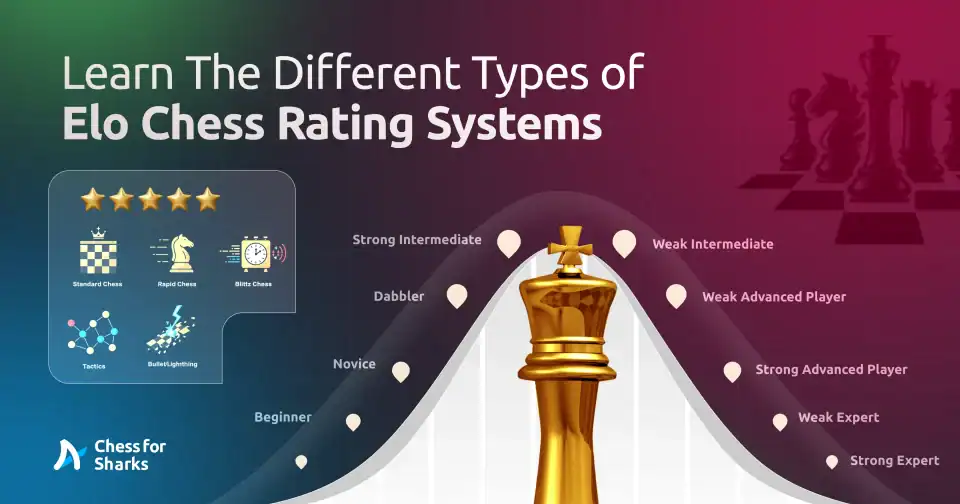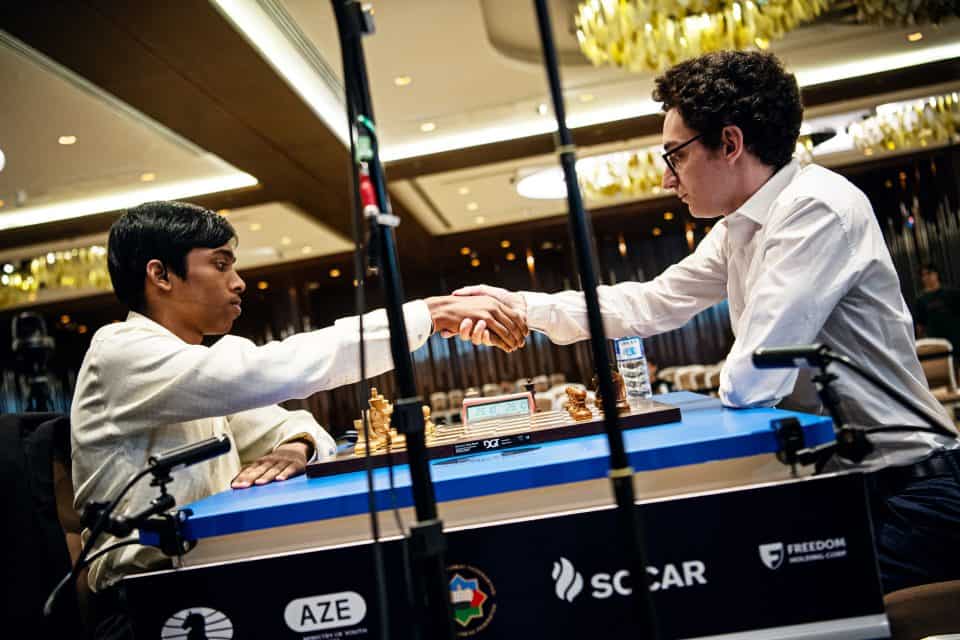Classical chess is standard chess played at a slower time control.
It’s the traditional form of chess that emphasizes strategic gameplay and careful planning.
For over the board matches, the time control for most of FIDE’s major events is 90 minutes for each player to complete the first 40 moves, followed by 30 minutes for the rest of the game, with an addition of 30 seconds per move starting from move one.
For online matches, classical chess begins at a much shorter time control, which is 30 minutes per side.
The quality of games from classical chess significantly increases as players have more time to think over the chess board compared to faster time control formats such as rapid or blitz.
How To Get Better At Classical Chess
Develop an Opening Repertoire
By familiarizing yourself with common chess openings and their associated plans, you gain a strategic edge over your opponents.
You should understand the principles behind each opening, such as controlling the centre, developing your pieces harmoniously, and taking the initiative.
You need to learn these opening ideas both for White and Black so you’re not taken by surprise when playing any of these sides.
For further study, we recommend these resources:
- 15 Best Chess Openings For White
- 10 Of The Best Chess Openings For Black
- An Introduction To Flank Openings
Play And Analyze Your Games
By playing more games, you expose yourself to a wider range of positions, tactics, and strategies, which helps you develop your chess intuition and decision-making abilities.
After every game, take just a few moments to review your game and analyze your mistakes. It doesn’t take long, but it makes a significant difference when you learn from your actual mistakes in your own games.
Analyzing your games allows you to identify patterns in your play, spot recurring mistakes, and gain insights into areas where you can improve.
It helps you develop a deeper understanding of your strengths and weaknesses, enabling you to make targeted improvements in your gameplay.
Learn how to analyze your chess games in 9 steps.
Study Chess Tactics
Tactics are short-term combinations of moves that help you gain an advantage over your opponent. Studying tactics is a great way to improve your chess skills.
You can find many online resources that offer free tactics training. Lichess is an amazing platform for this.
By dedicating time to studying chess tactics, you enhance your ability to spot tactical opportunities in your games.
You become more adept at calculating variations, identifying tactical motifs, and executing winning combinations.
We recommend these resources for further learning:
- Understanding These 12 Chess Tactics Will Make Chess Easy
- 5 Of The Best Chess Puzzles Out There (What We Love)
- How To Improve Your Chess Rating For Beginners (From 0-1800)
- How To Improve Your Chess Calculation in 9 Steps
Study The Endgame
The endgame is the final stage of the game when there are few pieces left on the board. It’s important to study the endgame because it’s where most games are won or lost.
Understanding endgame principles, such as pawn promotion, king activity, and piece coordination, allows you to convert slight advantages into decisive victories.
We recommend these resources for further learning:
- Chess Endgames: The Great Element Of Chess Mastery
- 5 Endgame Concepts You Must Know to Play Better Chess
Study The Games of Grandmasters:
By analyzing the games of grandmasters, you can gain insight into their thought processes and improve your own decision-making abilities on the chessboard.
Check some grandmaster games below and other useful resources:
- 9 Best Games Of Alexander Alekhine You Should Know
- How Many Moves Ahead Does A Grandmaster Think?
- What Is the Exchange Sacrifice in Chess?
Play Against Stronger Opponents
When facing more experienced players, you are exposed to advanced tactics, strategic planning, and creative maneuvers.
By observing and analyzing their moves, you can learn from their expertise and gradually enhance your own gameplay.
Read Chess Books
There is a vast selection of chess literature available, covering various aspects of the game, including openings, tactics, positional play, and endgames.
By delving into these books, you can deepen your understanding of chess principles, learn from notable games throughout history, and absorb the wisdom shared by renowned chess authors.
Whether you prefer physical books or digital editions, there are numerous resources online to suit your learning preferences.
Check out some of our recommendations:
- The Best Chess Books of all Time: From Beginner to Advanced
- 10 Of The Best Chess Books For Intermediate Players
Do let us know if this was useful.
You may also want to read:







join the conversation